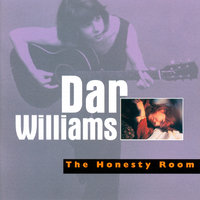| Mark Rothko Song (original) | Mark Rothko Song (traducción) |
|---|---|
| The blue it speaks so full | El azul habla tan lleno |
| It’s like the beauty one can barely stand | Es como la belleza que uno apenas puede soportar |
| Or too much things dropped in your hand | O demasiadas cosas cayeron en tu mano |
| And there’s a green like the peace | Y hay un verde como la paz |
| In your heart, sometimes | En tu corazón, a veces |
| Painted underneath the sheets of ashy snow | Pintado debajo de las hojas de nieve cenicienta |
| And there’s a blue like where the urban angels go, very bright | Y hay un azul como donde van los ángeles urbanos, muy brillante |
| Now the Calder mobile tips a biomorphic sphere | Ahora el móvil de Calder inclina una esfera biomórfica |
| Then it swings its dangling pieces 'round to other paintings here | Luego balancea sus piezas colgantes alrededor de otras pinturas aquí |
| Your behavior is so male | Tu comportamiento es tan masculino |
| It’s like you can’t explain yourself to me | Es como si no pudieras explicarme |
| I think I’ll ask Renoir to tea | Creo que invitaré a Renoir a tomar el té. |
| For his flowers are as real as they are, all the time | Porque sus flores son tan reales como son, todo el tiempo |
| And the sunlight sets the furniture aglow | Y la luz del sol ilumina los muebles |
| It’s a pleasant time as far as people go | Es un momento agradable en lo que respecta a la gente. |
| How far do they go? | ¿Hasta dónde llegan? |
| Well, his roses are perfect and his words have no wings | Bueno, sus rosas son perfectas y sus palabras no tienen alas. |
| I know what he can give me and I like to know these things | Sé lo que me puede dar y me gusta saber estas cosas |
| I met her at the funeral | la conocí en el funeral |
| She said I don’t know what he meant to me | Ella dijo que no sé lo que significaba para mí |
| I just know he affected me | Solo sé que me afectó |
| An effect not unlike his art, I believe | Un efecto no muy diferente a su arte, creo |
| The service starts and we are in the know | El servicio comienza y estamos al tanto |
| He had so much to say, but more to show | Tenía tanto que decir, pero más que mostrar |
| And ain’t that true of life? | ¿Y no es eso cierto de la vida? |
| So we weep for a person who lived at great cost | Entonces lloramos por una persona que vivió a un gran costo |
| And we barely knew his powers till we sensed that we had lost | Y apenas conocíamos sus poderes hasta que sentimos que habíamos perdido |
| A friend and I in a museum room | Un amigo y yo en una sala de museo |
| She says, «Look at Mark Rothko’s side | Ella dice: «Mira el lado de Mark Rothko |
| Did you know about his suicide? | ¿Sabías de su suicidio? |
| Some folks were born with a foot in the grave | Algunas personas nacieron con un pie en la tumba |
| But not me, of course.» | Pero yo no, por supuesto.» |
| And she smiles, as if to say we’re in the know | Y ella sonríe, como si dijera que estamos al tanto |
| Then she names a coffee place where we can go, uptown | Luego ella nombra un lugar de café donde podemos ir, en la parte alta |
| Now the painting is desperate, but the crowds wash away | Ahora la pintura está desesperada, pero las multitudes se lavan |
| In a world of kind pedestrians who’ve seen enough today | En un mundo de peatones amables que ya han visto suficiente hoy |
Traducción de la letra de la canción Mark Rothko Song - Dar Williams

Información de la canción En esta página puedes leer la letra de la canción Mark Rothko Song de -Dar Williams
Canción del álbum: The Honesty Room
En el género:Музыка мира
Fecha de lanzamiento:31.12.2005
Idioma de la canción:Inglés
Sello discográfico:Tunecore
Seleccione el idioma al que desea traducir:
¡Escribe lo que piensas sobre la letra!
Otras canciones del artista:
| Nombre | Año |
|---|---|
| 2012 | |
| 2005 | |
| 2021 | |
| 2005 | |
| 2021 | |
| 2021 | |
| 2005 | |
| 2021 | |
| 2004 | |
| 2005 | |
| 2004 | |
| 2004 | |
| 2005 | |
| 2004 | |
| 2005 | |
| 2004 | |
| 2005 | |
| 2005 | |
| 2004 | |
| 2004 |